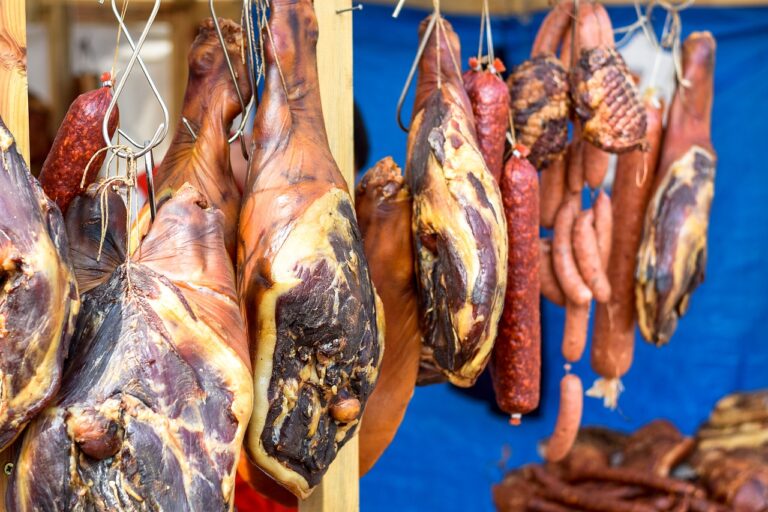Sustainable Meat Sourcing Practices in the Food Industry: 11xplay, Diamondexch9 com, Sky exchange sign up
11xplay, diamondexch9 com, sky exchange sign up: Sustainable Meat Sourcing Practices in the Food Industry
In recent years, there has been a growing awareness of the importance of sustainable practices in all industries, including the food industry. One area that has come under scrutiny is meat sourcing and production. With concerns about animal welfare, environmental impact, and food safety on the rise, consumers are becoming more selective about the meat products they purchase. In this article, we will explore the importance of sustainable meat sourcing practices in the food industry and how businesses can implement these practices to meet consumer demand and protect the planet.
The Impact of Meat Production
Meat production is a major contributor to greenhouse gas emissions, deforestation, and water pollution. According to the United Nations Food and Agriculture Organization, livestock production is responsible for 14.5% of global greenhouse gas emissions, making it a significant driver of climate change. In addition, the expansion of livestock farming has led to deforestation in many parts of the world, further contributing to environmental degradation.
Furthermore, the use of antibiotics in livestock farming has raised concerns about the development of antibiotic-resistant bacteria, posing a threat to both animal and human health. The intensive farming practices commonly used in meat production can also have negative impacts on animal welfare, leading to overcrowding, stress, and disease among livestock.
The Importance of Sustainable Meat Sourcing
Sustainable meat sourcing practices aim to address these environmental, social, and ethical concerns associated with meat production. By sourcing meat from farms that prioritize animal welfare, environmental stewardship, and community engagement, businesses can mitigate the negative impacts of meat production and build trust with consumers who are increasingly concerned about where their food comes from.
In addition to reducing greenhouse gas emissions and protecting natural habitats, sustainable meat sourcing practices can also improve the quality and safety of meat products. Animals raised in ethical and environmentally friendly conditions are less likely to require antibiotics, reducing the risk of antibiotic-resistant bacteria in the food chain. By prioritizing animal welfare, businesses can ensure that their meat products meet high standards of quality and safety, providing consumers with peace of mind about the food they eat.
Implementing Sustainable Meat Sourcing Practices
Businesses in the food industry can implement sustainable meat sourcing practices in a variety of ways. One effective strategy is to develop partnerships with local farmers and ranchers who practice sustainable agriculture and humane animal husbandry. By sourcing meat from these suppliers, businesses can ensure that their products meet high standards of sustainability and quality, while supporting local economies and promoting community resilience.
Another important aspect of sustainable meat sourcing is transparency and traceability in the supply chain. By communicating openly with consumers about where their meat comes from and how it was produced, businesses can build trust and loyalty among a growing segment of conscious consumers. Implementing traceability measures, such as blockchain technology or QR codes, can help businesses track the journey of their meat products from farm to fork, providing assurance that ethical and sustainable practices were followed at every stage of production.
The Role of Certification and Labeling
Certification programs, such as Certified Humane, Animal Welfare Approved, and USDA Organic, play a crucial role in verifying sustainable meat sourcing practices and providing consumers with information about the origin and quality of their meat products. By obtaining certification from reputable organizations, businesses can demonstrate their commitment to sustainability and differentiate their products in a competitive market.
Labeling is another important tool for communicating sustainable practices to consumers. By using clear and informative labels, businesses can educate consumers about the environmental, social, and ethical benefits of their meat products, helping them make informed choices at the grocery store. Labels such as “grass-fed,” “pasture-raised,” and “antibiotic-free” can signal to consumers that a product meets certain standards of sustainability and quality, guiding their purchasing decisions towards more ethical and environmentally friendly options.
The Future of Sustainable Meat Sourcing
As consumer awareness and demand for sustainable meat products continue to grow, businesses in the food industry will be under increasing pressure to adopt and promote sustainable sourcing practices. By investing in partnerships with ethical farmers, implementing traceability measures, obtaining certification, and using clear labeling, businesses can meet consumer expectations for transparency, quality, and sustainability in the meat products they purchase.
In conclusion, sustainable meat sourcing practices are essential for addressing the environmental, social, and ethical challenges of meat production in the food industry. By prioritizing animal welfare, environmental stewardship, and community engagement, businesses can build trust with consumers, protect the planet, and ensure the long-term viability of the meat industry. As consumer awareness of these issues continues to grow, businesses that embrace sustainable sourcing practices will be well-positioned to meet the changing demands of a conscious consumer base and contribute to a more sustainable future for all.
FAQs
1. What is sustainable meat sourcing?
Sustainable meat sourcing refers to the practice of producing meat in a way that prioritizes animal welfare, environmental stewardship, and community engagement. By sourcing meat from farms that adhere to high standards of sustainability and ethical production, businesses can mitigate the negative impacts of meat production and build trust with consumers who are increasingly concerned about where their food comes from.
2. Why is sustainable meat sourcing important?
Sustainable meat sourcing is important for addressing the environmental, social, and ethical challenges of meat production in the food industry. By reducing greenhouse gas emissions, protecting natural habitats, and improving animal welfare, businesses can meet consumer expectations for transparency, quality, and sustainability in the meat products they purchase. Sustainable meat sourcing practices also help businesses differentiate their products in a competitive market and contribute to a more sustainable future for all.
3. How can businesses implement sustainable meat sourcing practices?
Businesses in the food industry can implement sustainable meat sourcing practices by developing partnerships with local farmers and ranchers who practice sustainable agriculture and humane animal husbandry, ensuring transparency and traceability in the supply chain, obtaining certification from reputable organizations, and using clear and informative labeling to communicate sustainable practices to consumers. By investing in these strategies, businesses can meet consumer demand for sustainable meat products and contribute to a more ethical and environmentally friendly food industry.







